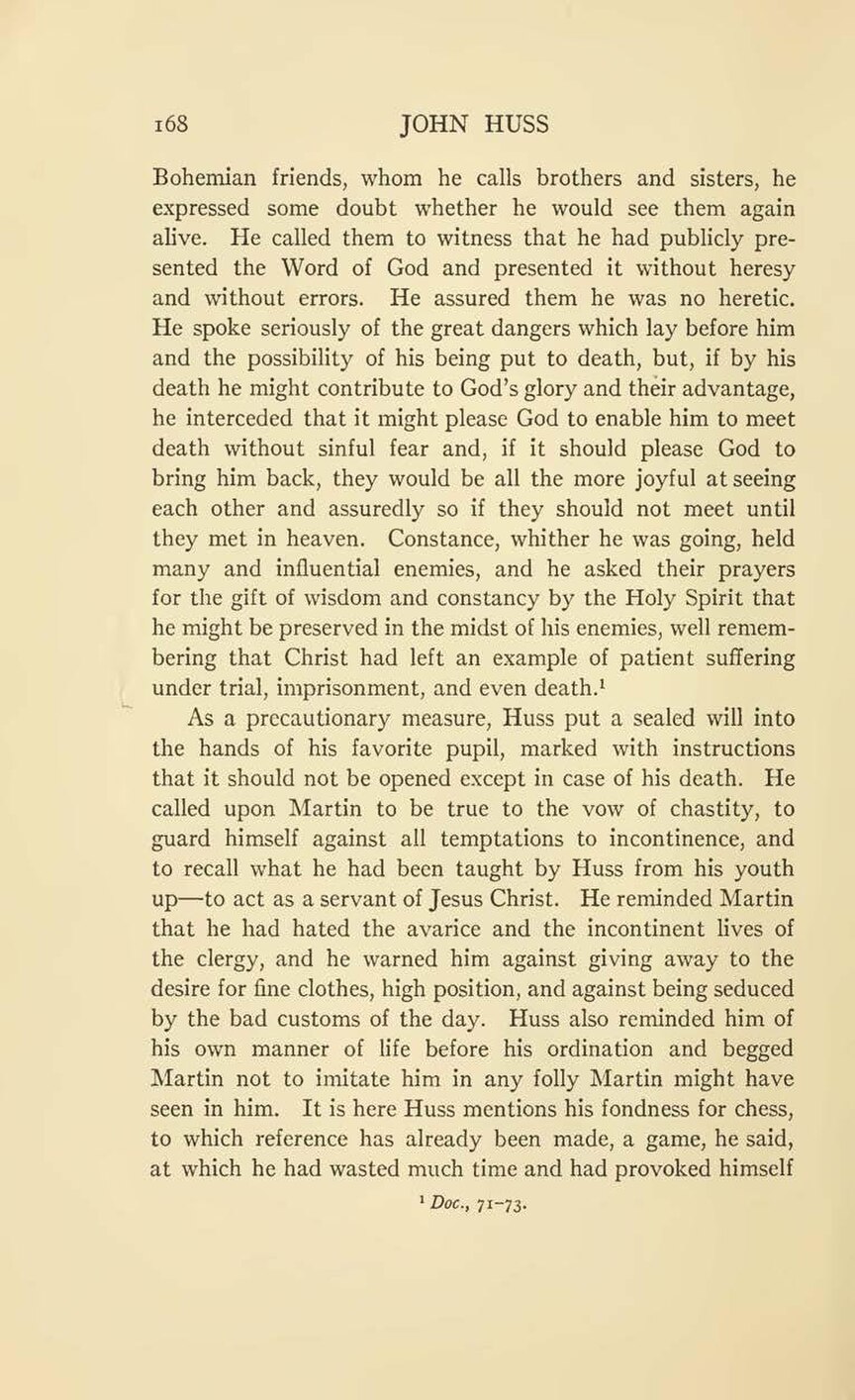Bohemian friends, whom he calls brothers and sisters, he expressed some doubt whether he would see them again alive. He called them to witness that he had publicly presented the Word of God and presented it without heresy and without errors. He assured them he was no heretic. He spoke seriously of the great dangers which lay before him and the possibility of his being put to death, but, if by his death he might contribute to God’s glory and their advantage, he interceded that it might please God to enable him to meet death without sinful fear and, if it should please God to bring him back, they would be all the more joyful at seeing each other and assuredly so if they should not meet until they met in heaven. Constance, whither he was going, held many and influential enemies, and he asked their prayers for the gift of wisdom and constancy by the Holy Spirit that he might be preserved in the midst of his enemies, well remembering that Christ had left an example of patient suffering under trial, imprisonment, and even death.[1]
As a precautionary measure, Huss put a sealed will into the hands of his favorite pupil, marked with instructions that it should not be opened except in case of his death. He called upon Martin to be true to the vow of chastity, to guard himself against all temptations to incontinence, and to recall what he had been taught by Huss from his youth up—to act as a servant of Jesus Christ. He reminded Martin that he had hated the avarice and the incontinent lives of the clergy, and he warned him against giving away to the desire for fine clothes, high position, and against being seduced by the bad customs of the day. Huss also reminded him of his own manner of life before his ordination and begged Martin not to imitate him in any folly Martin might have seen in him. It is here Huss mentions his fondness for chess, to which reference has already been made, a game, he said, at which he had wasted much time and had provoked himself
- ↑ Doc., 71-73.
